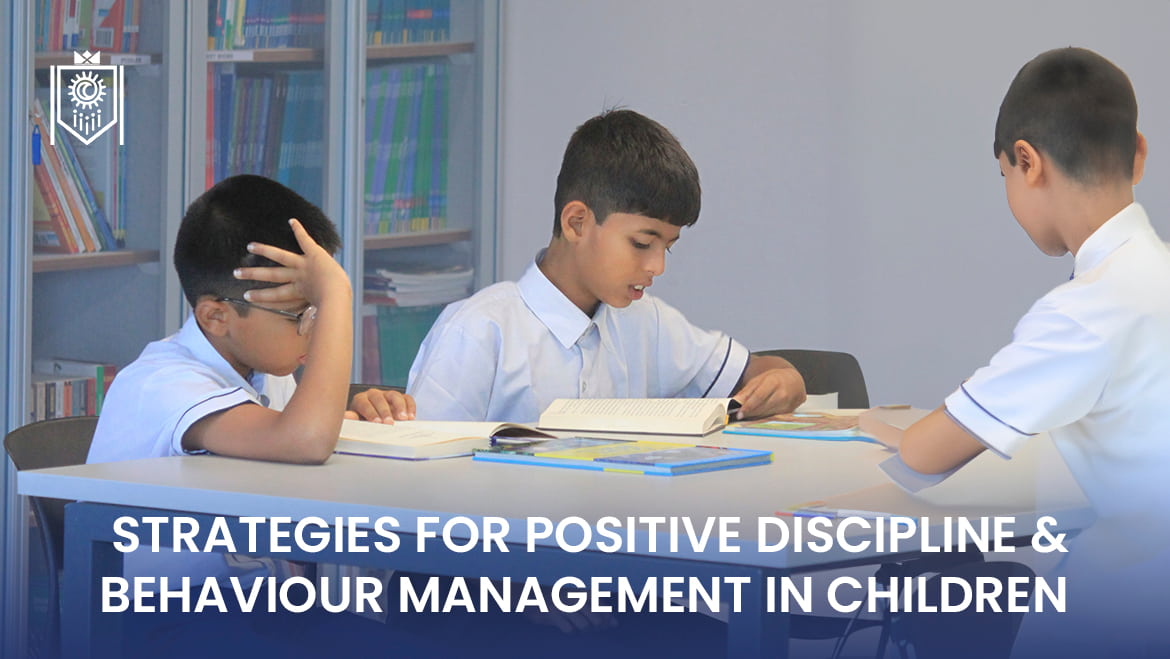Parenting is a journey filled with joys, challenges, and countless opportunities to shape young minds. One of the most crucial aspects of this journey is guiding children towards positive behaviour and instilling discipline. However, the way we approach discipline can make all the difference. Instead of relying on traditional punitive methods, many parents and educators are now embracing positive discipline—a compassionate, respectful, and effective approach to behaviour management.
Below are some key strategies to help you navigate this path.
1. Establish Clear and Consistent Expectations:
Children need to know what is expected of them to feel secure and to understand boundaries. Positively communicating these expectations is essential. Instead of saying, “Don’t yell,” you might say, “Please use your inside voice.” This subtle shift focuses on the desired behaviour rather than what the child shouldn’t do, making it easier for them to understand and follow the rules.
2. Be a Role Model:
Children learn a great deal by watching the adults around them. If you demonstrate kindness, patience, and respect in your daily interactions, your children are more likely to mirror those behaviours. For example, if you handle stress calmly, your child will learn to do the same. Remember, your actions are often more influential than your words.
3. Use Positive Reinforcement:
Positive reinforcement is a powerful tool in encouraging good behaviour. When a child exhibits desirable behaviour, praise them specifically for it. For example, “I’m so proud of you for sharing your toys with your friend today!” This not only boosts their self-esteem but also reinforces the behaviour, making them more likely to repeat it.
4. Implement Natural and Logical Consequences:
Rather than resorting to punishment, allow children to experience the natural consequences of their actions. For instance, if they refuse to put away their toys, those toys might be unavailable to play with the next day. Logical consequences should be related to the misbehaviour and help children understand the impact of their actions, fostering a sense of responsibility.

The Image is taken from Freepik
5. Practice Time-In Instead of Time-Out:
Traditional time-outs can make children feel isolated and misunderstood. Instead, consider using a “time-in” approach. This involves sitting with your child in a calm space, discussing their feelings, and helping them find better ways to handle similar situations in the future. This method focuses on connection and teaching, rather than punishment.
6. Show Empathy and Listen Actively:
Children are more likely to cooperate when they feel understood and respected. Show empathy by acknowledging their feelings and listening actively to their concerns. For example, “I see you’re upset because you wanted more playtime. Let’s talk about how we can manage our time better tomorrow.” This approach helps children feel valued and encourages open communication.
7. Maintain Consistent Routines:
Routines provide children with a sense of security and predictability, which can reduce anxiety and help manage behaviour. Having consistent times for meals, play, and sleep can create a stable environment where children know what to expect, making them less likely to act out.

8. Encourage Problem-Solving Skills:
Empower your children by involving them in problem-solving. When conflicts arise, ask them for their input on how to resolve the issue. This not only helps them feel heard but also teaches critical thinking and decision-making skills. For example, if siblings are arguing over a toy, encourage them to come up with a fair solution together.
9. Stay Calm and Patient:
Disciplining with a calm and patient demeanour is crucial. When emotions run high, it’s easy to react impulsively, which can escalate the situation. Take a deep breath and approach the issue with a level head. This not only sets a positive example but also helps maintain a peaceful environment where learning can take place.
10. Focus on Building a Strong Connection:
Children are more likely to listen and follow rules when they feel a strong emotional connection with their parents or caregivers. Spend quality time with your children, engage in activities they enjoy, and show them unconditional love and support. A strong bond fosters trust and cooperation, making discipline more effective and less stressful.
Conclusion:
Positive discipline is about guiding children with respect, empathy, and understanding. By focusing on teaching rather than punishing, parents can help their children develop self-discipline, responsibility, and emotional intelligence. These strategies not only address immediate behavioural issues but also lay the foundation for a lifetime of positive behaviour and healthy relationships.
Remember, discipline isn’t just about correcting behaviour; it’s about guiding your child toward becoming a happy, responsible, and well-adjusted individual. As the famous Buddha saying goes “The person who masters himself through self-control and discipline is truly undefeatable”
Leaving you with these positive thoughts to encourage your child similarly do let us know in the comments section.
Author Name:
Sujata Pathare,
Parent Of Tanvi Pathare (Sr. KG)


